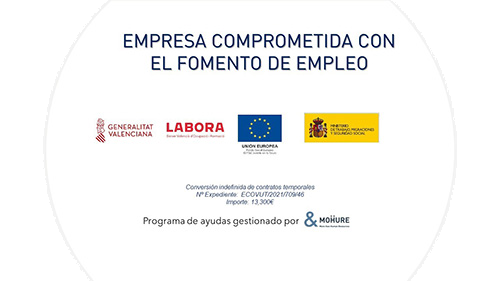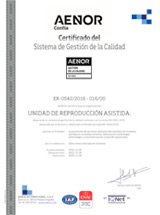Embryonic genetic study allows a selection of the best embryos for implantation
The delay in childbearing age and impoverishment of semen quality observed in recent years mean that more and more couples requiring assisted reproductive techniques to see his wish of having a healthy child.
"A woman of 38-39 years is less than 10% chance of becoming pregnant because of genetic abnormalities in the gametes and embryos, which cause most of these have serious genetic abnormalities incompatible with life," he said Professor of the Faculty of Medicine and director UMH Unit Vistahermosa Genetics, Clinical Hospital Joaquin Rueda, for his paper "Is it useful genetic screnning in embryos before implantation?", given at the seminar organized by the Institute of Molecular and Cell Biology, University Miguel Hernandez.
 In recent years, research and technology in reproductive genetics has made great strides adapting to the current social changes, mainly supervening by the incorporation of women into the labor market and the performance of functions and positions of high responsibility, developing diagnostic strategies allow to select healthy embryos.
In recent years, research and technology in reproductive genetics has made great strides adapting to the current social changes, mainly supervening by the incorporation of women into the labor market and the performance of functions and positions of high responsibility, developing diagnostic strategies allow to select healthy embryos.
Professor wheel suggests performing a genetic study of embryos prior to implantation. “Obtaining one or more pre-embryo cells, depending on day of ripening, is what is called embryo biopsy. From that cell we are able to amplify the entire genome and to study all the DNA, ie 24 chromosomes. This allows a selection of the best embryos for implantation. By having our own technical center and the necessary experience, the results are obtained within 12 hours after the biopsy. ”
Says the director of the Genetics Unit Vistahermosa, that “with the genetic selection of embryos nullify the negative effect of maternal age on the implementation, since 90% of women aged 40 will have at least one embryo genetically normal “, so you can achieve pregnancy rates of up to 70% with the application of preimplantation genetic screening.










